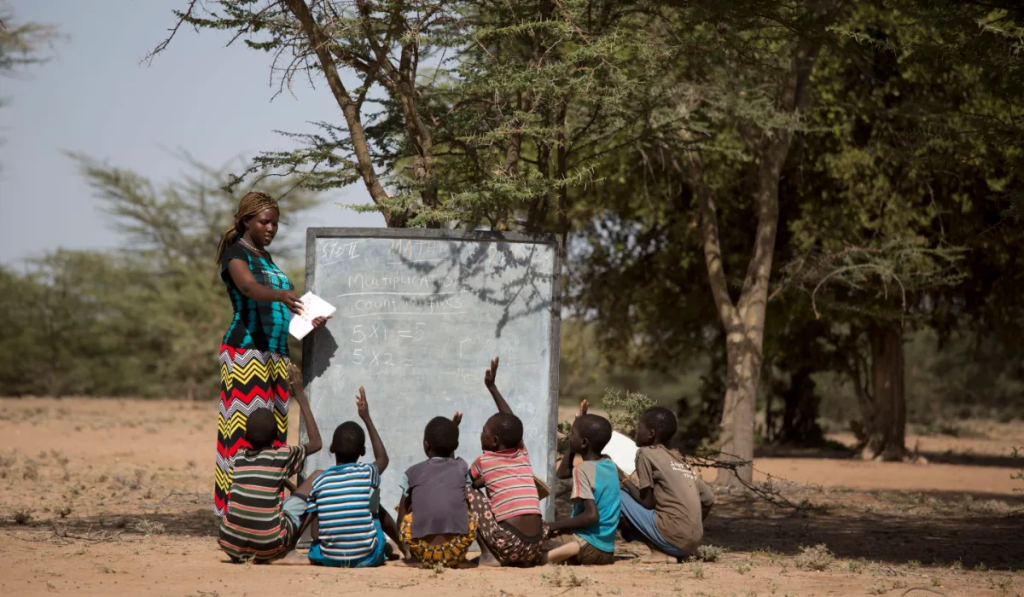Extreme weather events, including heat waves, floods, and cyclones, have disrupted the education of millions of children across the globe, with the most severe impacts felt in middle and low-income countries, according to a new United Nations Children’s Fund (UNICEF) report.
The agency warned on Friday that the climate crisis is having an “overlooked” impact on education, as the effects of climate change increasingly threaten children’s future.
In 2024, about 242 million children in 85 countries were unable to attend school due to these extreme conditions.
The report revealed that one in seven students globally was affected by disruptions, with heat waves, floods, and cyclones preventing their access to education.
UNICEF warned that the issue is often neglected in broader climate discussions.
Last year marked the hottest on record, with global temperatures surpassing the critical 1.5°C warming threshold, further intensifying the impact of extreme weather.

South Asia was the region most affected by these climate events, with heat waves alone impacting 171 million children.
In April, extreme temperatures in Bangladesh, Cambodia, India, Thailand, and the Philippines disrupted the schooling of 118 million children. Later in the year, Typhoon Yagi struck East Asia and the Pacific, further compounding the education crisis.
The situation was particularly dire in South Asia, where 128 million schoolchildren were affected, with India suffering the greatest impact. Over 400 schools in Pakistan were destroyed by flooding in April, and in Afghanistan, heat waves followed by severe flooding in May wiped out more than 110 schools.
The report emphasised that 74% of the affected children were in middle and low-income countries, underscoring the disproportionate impact on vulnerable communities.
In southern Africa, prolonged droughts worsened by El Niño, as well as cyclones and storms, left many children unable to attend school, further hindering their education.
UNICEF Executive Director Catherine Russell criticised the lack of attention given to education in climate policies.
She noted that children are especially vulnerable to extreme weather, with physical conditions such as slower heat dissipation making them less equipped to cope.
Russell also stressed that damaged infrastructure, flooded routes, and extreme classroom temperatures further hinder children’s ability to learn.


